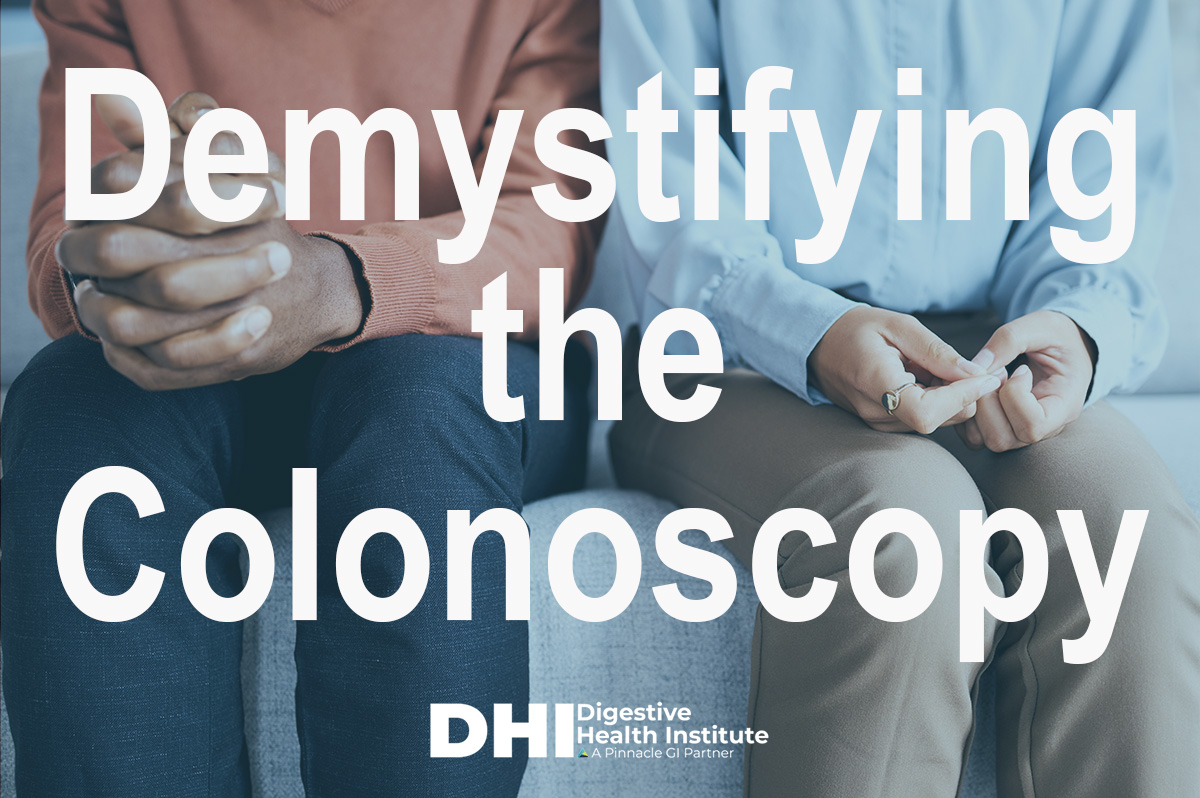Dread. Fear. Embarrassment.
These are emotions so commonly associated with colonoscopy. But why?
Like a local legend involving cryptoids or haunted houses, the anxiety over having a colonoscopy has taken on a life of its own, growing in size and hyperbole like a snowball rolling downhill, with each unsubstantiated claim adding to the lore.
The reality, however, is the actual procedure is among the most innocuous you can have performed. Putting it into modern slang terms, it’s largely a “nothing burger”.
What is a Colonoscopy?
In the simplest of terms, a colonoscopy is where a doctor uses a flexible, lighted tube to look inside your rectum and colon.
During a colonoscopy, the doctor looks for any unusual cell masses or polyps that should not be there. Upon finding one, they will generally remove it and send it for testing to determine whether it is cancerous or benign (non-cancerous).
Can’t I Just Use One of Those Mail Order Kits I’ve Seen on TV?
This has become an increasingly common excuse.
When it comes to proper screening, while there are mail-order kits, they are not your best option.
A colonoscopy is unequivocally the most comprehensive screening option. During it, you can both detect and remove potentially cancerous polyps, which can significantly help prevent Colorectal Cancer. If you get an abnormal or positive result with a tool-based test, you will have to get a colonoscopy anyway.
Also, these tests can commonly return false positives, which means? You guessed it; you must also follow up with a colonoscopy to rule out cancer or polyps, which may become cancer.
So, add it all up, and what do you get? Just get the colonoscopy!
But… I don’t want anything inserted into my butt…
A common theme among people that prevents them from following the recommended course of care when it comes to colorectal health is the fear and discomfort with the idea of having something inserted into their rectum.
We’re here to help put your mind at ease.
When you undergo a colonoscopy, you are first sedated. “You shouldn’t expect any pain or discomfort,” says Digestive Health Institute’s own Dorian Jones, M.D. “You’ll go to sleep, and afterward, you wake up feeling pretty good and not remembering anything.”
As with a surgical procedure, the doctor performs the exam while you are asleep, and then you wake up in the recovery area. Moreover, since the procedure is painless, you needn’t worry about discomfort once the sedation wears off.
“Often times a patient will wake up and say they’re ready to start, and I tell them they’re already done,” says Dr. Jones.
What else is involved?
Before you undergo your colonoscopy, you will be required to undergo a strict diet in preparation for the exam. The goal is to clear out your digestive system, allowing for the physician performing the colonoscopy to get the clearest possible view of your rectum and colon to identify and remove any abnormalities.
The doctor performing the colonoscopy will provide detailed instructions for the days leading up to your screening. Still, in general, you will be asked to follow some variation of the following preparatory instructions:
- 3 Days Prior – Begin low-fiber diet
- 1 Day Prior – Begin a clear liquid diet combined with a prescription laxative drink to clean out your colon
- 1 Night Prior/Day of Procedure – No food or drink after a certain time
What happens after my colonoscopy?
“The rest of the day, you can typically eat whatever you want. You can relax and then get back to regular activities the next day,” says Dr. Jones.
If the performing physician finds nothing of concern during your screening – that’s it!
Generally, you can expect to go another 10 years without another colonoscopy unless any symptoms of colorectal issues present themselves in the interim. A personal or family health history that puts you at higher risk of Colorectal Cancer may also require more frequent screening. You and your doctor will determine the proper course of care based on your circumstances.
If the performing physician does find an abnormality, such as a tumor or polyp, they will generally remove it and then send it out for testing.
Whether the results of that test come back showing the abnormality to be benign or cancerous, your doctor is likely to recommend you have a colonoscopy performed more regularly than every 10 years, just to keep an eye on things.
FACT: Early detection reduces the risk of Colorectal Cancer by 89%
Should the abnormality present itself as cancerous, additional testing may be prescribed, or your doctor may recommend you begin treatment immediately to combat the cancer’s growth and spread.
Don’t panic, however. Caught early and treated immediately, Colorectal Cancer is one of the most beatable cancers.
FACT: There are 1.5 million Colorectal Cancer survivors in the U.S.
FACT: Colorectal cancer, when caught and treated early on, has a 91% survivability rate
Nothing to fear now! So, let’s get you screened!
For your convenience, we have multiple locations throughout the Greater Lansing Community. Contact us today to request your appointment!

